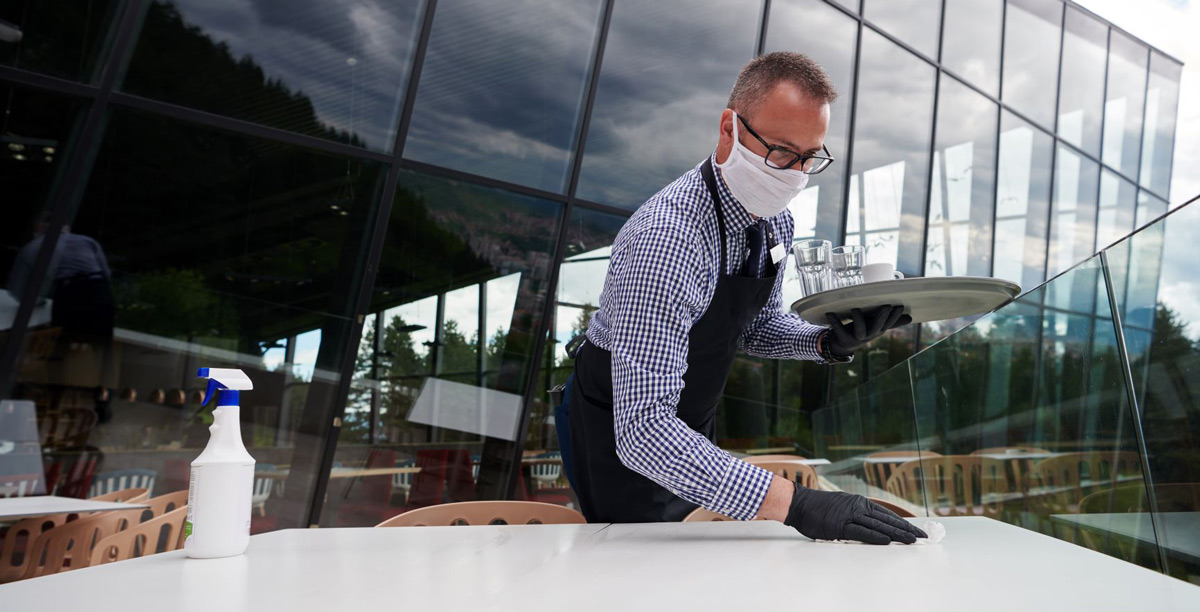
In the midst of a pandemic how can we safely return to work? It’s a question on the minds of employees, employers and policymakers as the world begins the process of re-opening during COVID-19.

Dr. Mel Krajden
Now, in an effort to support decision-making around relaxing restrictions and managing work environments as society reopens, UBC faculty of medicine researchers—Dr. Mel Krajden, Dr. Josef Penninger, and Dr. Simon Pimstone—are collaborating with an inter-sectoral team of industry, academic, and public sector partners in British Columbia to lead a new 15-month, $1.2 million return-to-work study.
The data from the “SARS‐CoV‐2 Study for Eased Restrictions in British Columbia” (SAfER) project, collected in controlled settings, will be available in real time to help inform public health decisions that lead to positive outcomes.
“Effective handling of this pandemic relies on collaboration between public health, academia, and industry to ensure key research is translated into practice,” says Dr. Krajden, professor in the department of pathology and laboratory medicine.

Dr. Josef Penninger
The SAfER study—supported by Genome BC, Genome Canada, and industry partners—will track and collect data over time on infection, immunity, contacts, and clinical symptoms for 1500 volunteer employees at B.C.-based biotechnology companies, including Xenon Pharmaceuticals, STEMCELL Technologies Therapeutics, Zymeworks Inc., as well as UBC and Simon Fraser University. An employee survey will also collect information about stress and anxiety related to the pandemic.
“It is absolutely critical to perform testing to make sure that we can safely re-open. I am very honoured that the Life Sciences Institute at UBC will be a key testing centre, helping to guide the gradual resumption of our activities,” says Dr. Penninger, professor in the department of medical genetics, director of the Life Sciences Institute, and Canada 150 Chair in Functional Genetics.
“It is absolutely critical to perform testing to make sure that we can safely re-open.”
Dr. Josef Penninger, professor in the department of medical genetics

Dr. Simon Pimstone
“No one can solve the challenges around re-opening workplaces on their own. We hope that the type of public-private partnership we are creating with this work can help create a framework for data-driven conversations with all the players at the table,” says study co-lead,” adds Dr. Pimstone, study co-lead and clinical associate professor in the department of medicine.
The breadth of data types collected will also enable integrated data analyses that will reveal trends and predictive markers to inform workplace safety recommendations for COVID-19 and future pandemics.
“The SAfER study will track and collect anonymous data that will provide unique information about the impact of COVID-19 in the workplace and academic research settings,” says Dr. Pascal Spothelfer, President and CEO, Genome BC. “This is one of the first projects of its kind in Canada, and B.C. has a window of opportunity in which to learn and lead as we prepare to meet the coming challenges.”
The SAfER BC study will be supported with testing and tracing partnerships with diagnostics company LifeLabs and app developer Thrive Health. The BC Centre for Disease Control will hold the data and perform the analyses.
A version of this story was originally published on Genome BC.